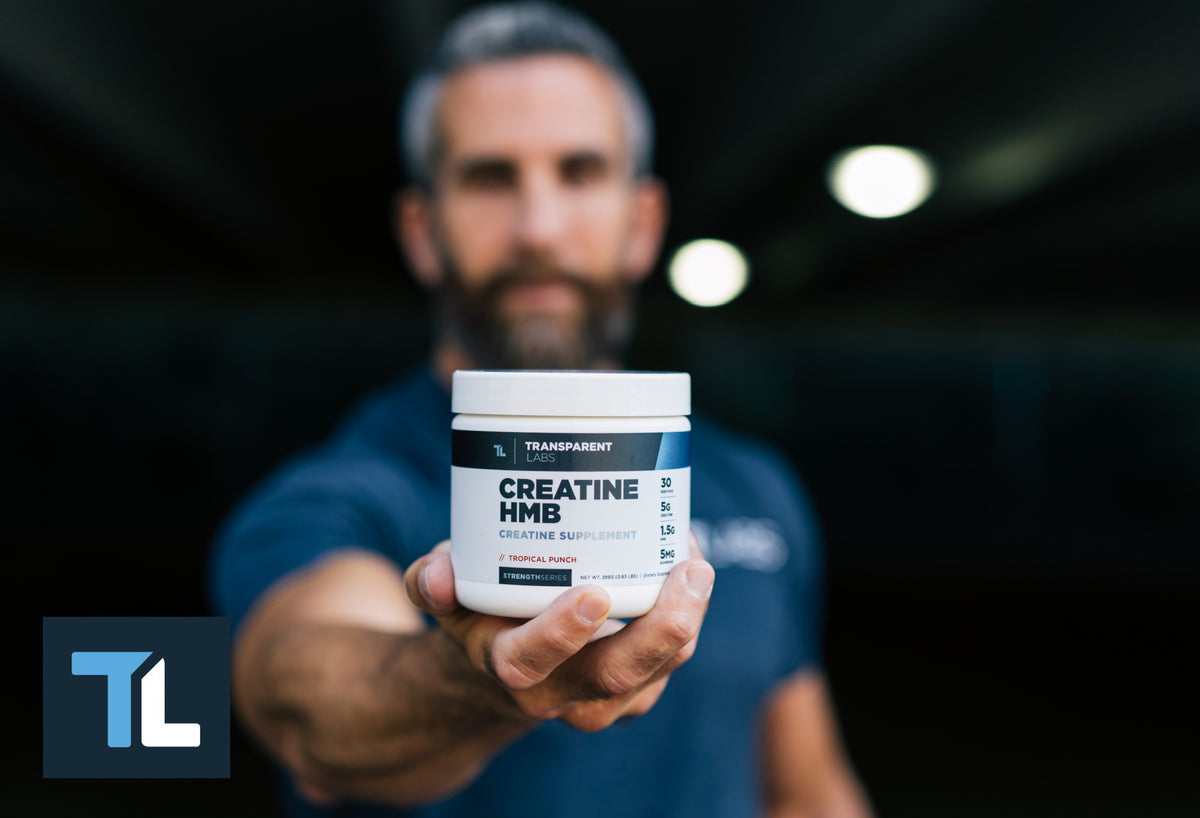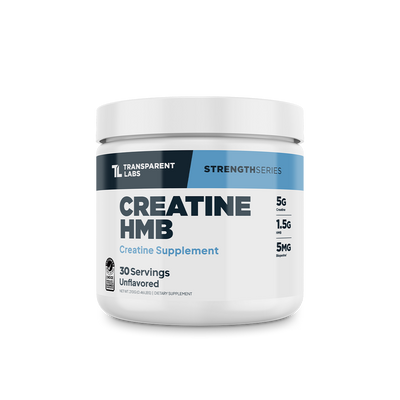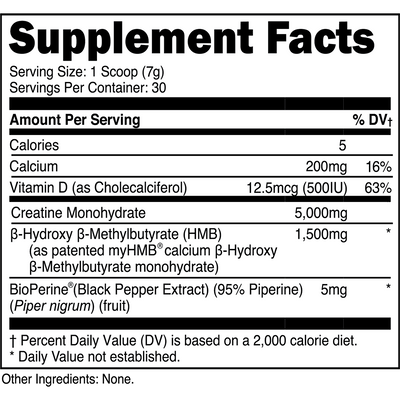What Is the Best Creatine Supplement? (2024 Science Update)

What Is the Best Creatine Supplement? Monohydrate? Hydrochloride?
The creatine supplement space is saturated with seemingly countless options and formulations. Thankfully, creatine is a relatively straightforward supplement; the main thing you want in a quality creatine formula is pure creatine monohydrate. Additional "synergistic" ingredients may help with muscle growth and recovery, but you certainly don't need the bells and whistles that companies like to throw in the mix.
Moreover, you'll find plenty of supplement companies touting the advantages of "cutting-edge" creatine forms over creatine monohydrate. New research is uncovering the promises (and pitfalls) of so-called "advanced" forms of creatine, such as creatine hydrochloride (HCl), creatine nitrate, buffered creatine, and creatine ethyl ester, but do they hold a candle to the monohydrate form?
We did some investigating to determine what the best creatine supplements are and what separates them from the rest of the pack. This article will also debunk some common myths about creatine supplementation for building muscle mass and enhancing athletic performance.
Medical Disclaimer: Consult with a physician before using creatine supplements, especially if you have pre-existing health issues that may alter the pharmacokinetics of creatine and its primary byproduct, creatinine. A pertinent example is renal impairment, which can lead to an accumulation of creatinine in the blood and kidneys. Note that this does not mean creatine is bad for the kidneys. Rather, taking creatine supplements may be unsafe if your kidneys aren't functioning correctly.
The Big Question: Is Creatine Monohydrate Still the Best Creatine Supplement in 2024?
What's the best creatine supplement, according to science? It won't come as any surprise that creatine monohydrate remains the most-studied sports supplement (literally), followed closely by none other than caffeine.
A handful of newer forms of creatine promise theoretical advantages over creatine monohydrate, but the research to substantiate them is generally lacking [1]. Notably, creatine ethyl ester appears to be vastly inferior to tried-and-true creatine monohydrate [2].
Other forms of creatine, namely creatine HCl, creatine anhydrous, and creatine magnesium chelate, are viable options if you don't respond well to creatine monohydrate. Still, it's advisable to start with the monohydrate form before diving into the "exotic" stuff.
In the (hopefully) near future, we will better understand which form of creatine stands the test of time like creatine monohydrate has. Innovating is commendable when it makes sense; for now, however, the best creatine supplement is creatine monohydrate powder. As the saying goes, if it ain't broke, don't fix it.
What About Micronized Creatine Monohydrate?
Pure micronized creatine powder is creatine (monohydrate) with reduced particle size. The theoretical advantage of micronized creatine monohydrate is increased solubility and, therefore, absorption, but no research has supported this claim yet. Ironically, plain creatine monohydrate is nearly 100% absorbed when taken orally (i.e. it's either taken up by tissues or excreted in the urine) [3].
Creatine Supplementation FAQs

Q: Does creatine cause any side effects?
A: The main side effects of creatine (monohydrate) are bloating and urinating more frequently [4]. We hesitate to call these "side effects" since they result from creatine drawing water into muscle cells, which fosters an anabolic cellular milieu.
Some people try to counteract the above side effects by reducing their water/fluid intake while using creatine. Do not do this. Hydration is crucial for creatine supplementation to be effective. Limiting your fluid intake will only increase the risk of muscle cramps and dehydration.
Q: Are creatine supplements safe?
A: Assuming they're made with quality raw materials, creatine supplements are safe for a large majority of the population. Creatine monohydrate has an exceptional safety profile in research; it is very unlikely to produce harmful side effects when used properly by healthy adults [5].
Q: When is the best time to take creatine?
A: Research shows that creatine is best absorbed after intense training due to the acute physiological response to exercise that relies predominantly on the phosphocreatine and anaerobic energy systems [6]. We have a separate article that goes more in-depth on the science of creatine absorption: When to Take Creatine Supplements
Q: Do I really need to consume a bunch of sugar with creatine monohydrate for it to be fully absorbed?
A: Evidence suggests that the insulin-stimulating effects of fast-acting sugars can further enhance creatine uptake into muscle cells, but this mechanism remains somewhat controversial [7]. To be clear: You don't need to consume simple sugars with creatine monohydrate.
For the pragmatist who doesn't want to drink a ton of simple sugars, which is generally a poor health decision in its own right, it's best to take creatine by itself or with a modest amount of both carbohydrates and protein.
Q: Does caffeine negate the benefits of creatine?
A: Large doses of caffeine (e.g. > 4 mg/kg body weight) may interfere with the ergogenic effects of creatine through physiological antagonism and gastrointestinal distress [8]. Individuals that use a pre-workout supplement with caffeine should supplement with creatine after their workouts or another time of day, such as first thing in the morning.
Q: Do I need to drink creatine monohydrate immediately after mixing it in liquid?
In general, no. There's a myth that creatine rapidly degrades to creatinine when mixed in water, but that's not really the case. Creatine is actually quite stable in solutions at neutral pH (e.g. chilled drinking water) and when kept at a cool temperature. However, if you mix your creatine in an acidic beverage, like juice, it's best to drink it immediately as the lower pH can contribute to creatinine conversion [9].
Q: What should I take with my creatine supplement?
A: Stacking creatine with other supplements can produce further benefits that may not be achievable by a creatine-only supplement. In general, creatine stacks well with pretty much any other post-workout supplements you might take, including whey protein, HMB, carbohydrates, and BCAAs.
Q: Creatine powders vs. creatine pills vs. liquid creatine — which is best?
A: Creatine monohydrate is quite unstable in aqueous solutions and spontaneously degrades to its byproduct, creatinine. This is why it's prudent to drink creatine monohydrate within 15 minutes of mixing it in liquid. Manufacturers may add some stabilizing agents, like citric acid and bicarbonate, to ready-to-drink creatine monohydrate formulas, but the potency of these products remains very limited if they're not consumed in a timely fashion.
Creatine capsules are an option if you're averse to using creatine powder, but be prepared to swallow multiple large pills if you go that route. For practicality's sake, creatine powder is ideal.
What's the Best Creatine Monohydrate Formula?
So, now you're probably wondering what the best creatine monohydrate supplement is? Surely, not all creatine monohydrate supplements are the same quality, which is where things get a bit confusing.
Unfortunately, you can't judge a creatine supplement by how popular it is or what the label on the bottle looks like. It's what's in the container that matters, and you deserve to know exactly what you're putting in your body when you take a creatine supplement.
You're much better off spending a little extra and getting a quality creatine monohydrate supplement that includes pure creatine monohydrate tested for purity and potency. Transparent Labs Creatine HMB is a prime example of a premium creatine monohydrate supplement. Not only does it provide the best form of creatine — monohydrate — but also added hydroxy-methylbutyrate (as myHMB®), vitamin D3, and BioPerine® for enhancing muscle growth, recovery, and ingredient absorption. Even better, the product is gluten-free, non-GMO, and free of artificial flavors, sweeteners, and colors.




